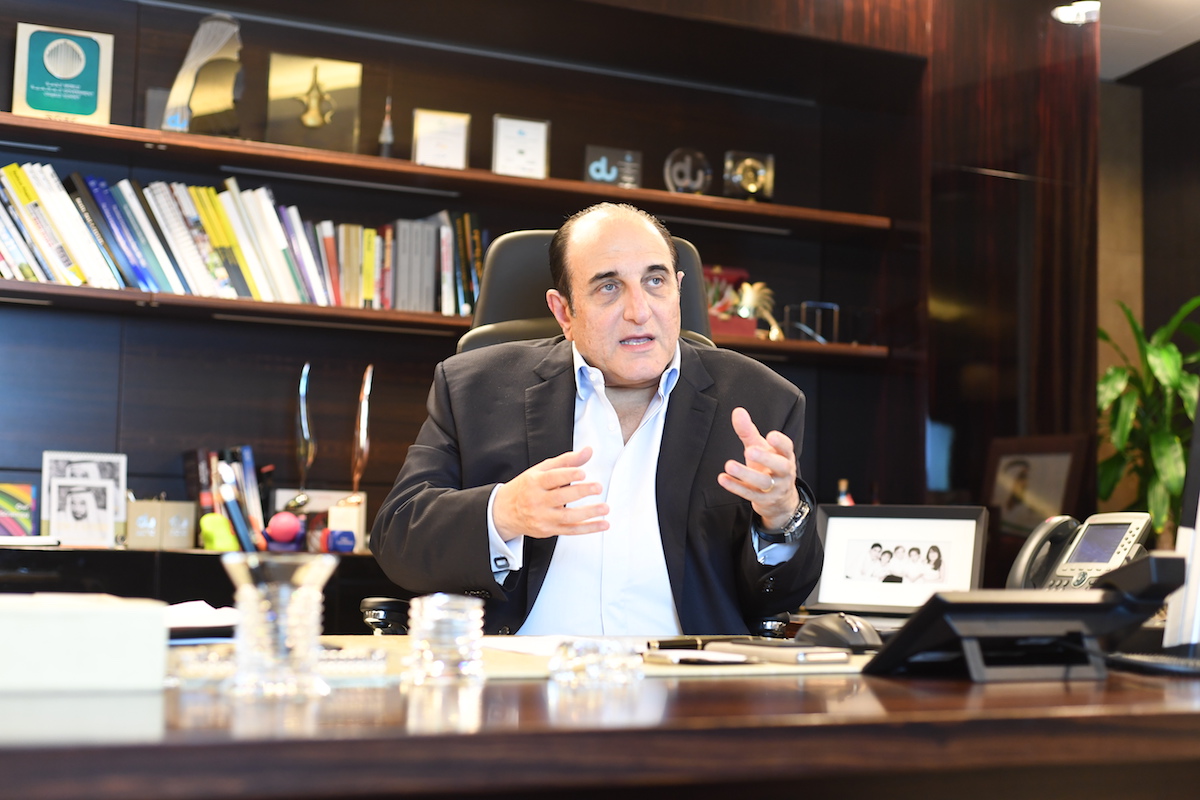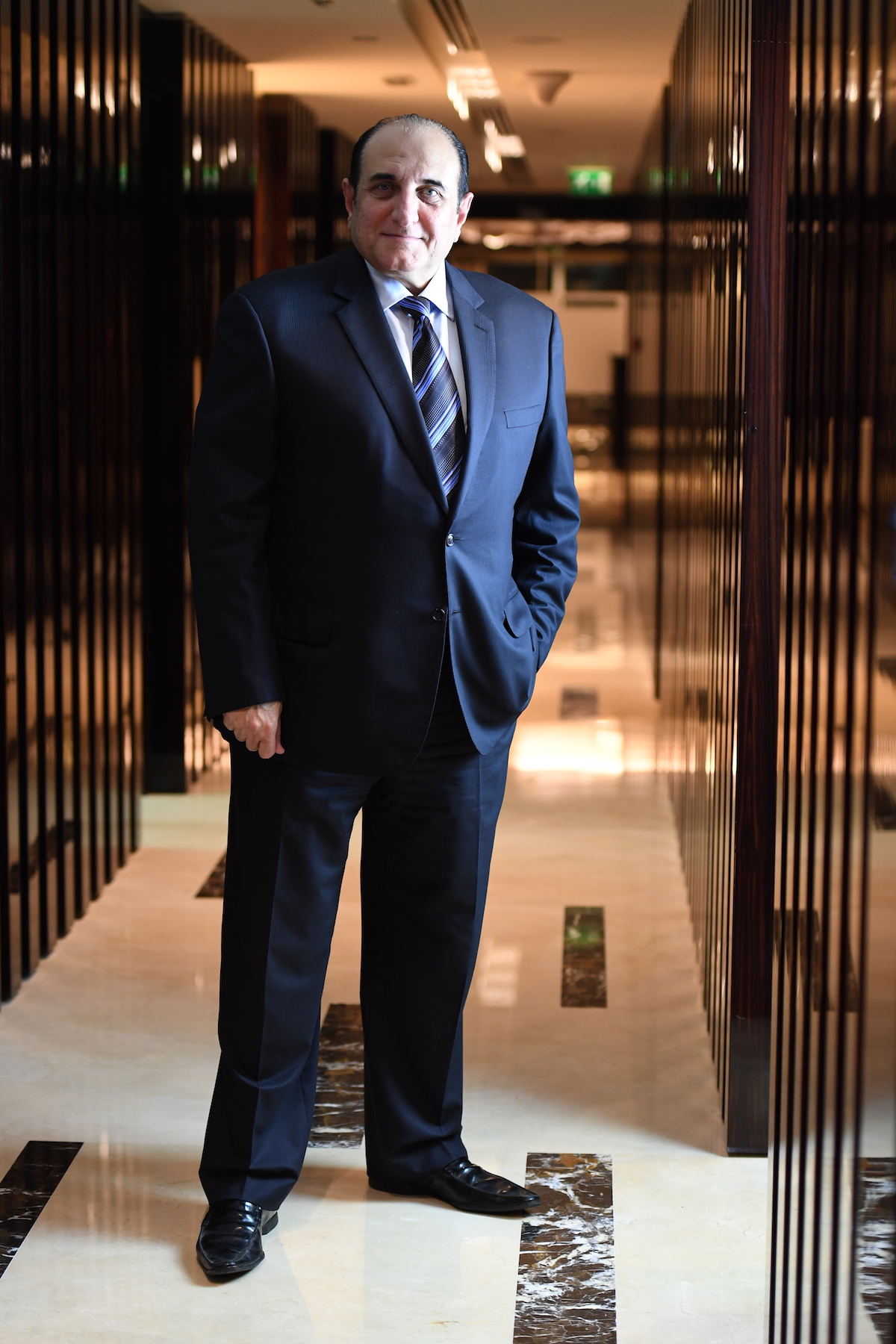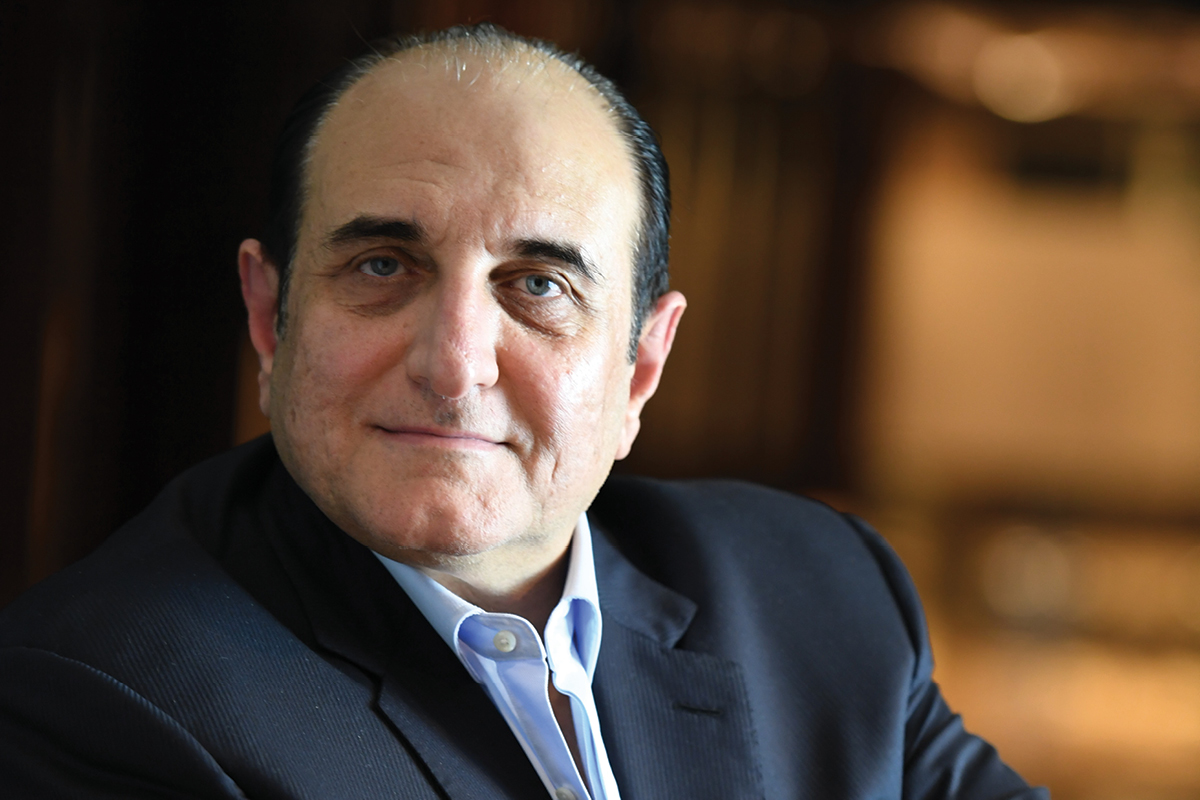If you want a lesson in the ever-evolving landscape of telecommunications, look no further than Osman Sultan – the CEO of Emirates Integrated Telecommunications Company (EITC).
With more than 35 years of experience across Europe, North America and the Middle East, he has worked in renowned companies including France Telecom Group and France Telecom Mobiles International.
He has also helped build Mobinil, now known as Orange Egypt. So, it came as no surprise when the telco veteran was appointed to lead du – in the United Arab Emirates (UAE) – as its founder-CEO in January 2006.
Osman has driven du, from Emirates Integrated Telecommunications Company, to become one of the region’s fastest growing telcos and an operator of choice for many customers in the UAE.

While the future of the industry promises great excitement and innovation, Osman says the challenges and opportunities that exist today are bigger than ever before.
The CEO Magazine: Tell us about some of your greatest successes with du.
Osman: Our achievements fall into two categories: the first comes under the umbrella of our core telecom business and the other is in the strategic moves we’ve made in adjacencies.
During the past few years, we have built du to be one of the most recognisable names among the largest telecom brands in the region. Not only that, EITC ranks among the top global telecom players in terms of shareholder returns.
Last year, we successfully launched our second mobile brand, Virgin Mobile, in the region. It follows a completely digital approach and aims for what we consider as the next-level experience for millennials.
In 2016, we saw our greatest achievement in complementary projects when we were awarded the strategic partnership with the government-driven Smart Dubai Platform.
This has been a positive outcome for EITC because it acts as a springboard that enables us to move beyond pure connectivity services.
Now, we offer fully integrated platforms with multiple stakeholders that are propelling us into the new world of cloud services, IoT, data analytics, applications and cybersecurity.
What are some challenges you face, not only as a company but as an industry?
The main challenge facing the telecom industry is making sure the usage services we provide are monetised properly. To do this, we need to make the necessary strategic investments and ensure we are operating under a sustainable financial equation.
Our market is highly disrupted, but we should not be afraid of that or feel threatened. Instead, we should change, altering our business models to adapt to this new reality, while making sure to leverage our greatest assets.
I believe, as an industry, we are definitely not doing this as often and as fast as we should. Altering ourselves and learning is critical for us to advance as a business and culture.
So, we need to scale up how efficiently we adapt to the changing environment.
What is du’s cybersecurity strategy?
Our cybersecurity strategy has two aspects. The first is the protection of our own operations. We must have the right tools to protect our network, the integrity and privacy of our customers’ data, and the security of their transactions.
We have a successful track record in this. The other dimension is the emergence of cybersecurity as a key component of our B2B offerings.
So, we have started offering cybersecurity to our customers as part of our ICT solutions, helping them to achieve more secure and efficient business practices whether they are start-ups, large businesses or government entities.
Tell us about your plans to launch a 5G network in the UAE.
The UAE government aims to be at the forefront of digital transformation and we are fortunate to be operating in such a positive ecosystem.
As a result, we will likely be among the first operators in the world to roll out 5G. Personally, I’m very optimistic about 5G even though there are questions about the use cases and underlying business models.

How do you maintain a strong culture in your workplace and why is it important?
I am constantly explaining to my colleagues how important it is to embrace change. I say we are blessed to be part of an innovative industry that has the potential to disrupt our business.
We should see this not as a threat, but as a tremendous opportunity. It drives us to be open-minded and to change the industry for the better.
New concepts are sprouting every day, such as artificial intelligence and robotics, with high potential to impact our businesses.
Therefore, it is imperative to promote a culture of change and create an atmosphere that nurtures cross-disciplinary dialogues.
Even if we don’t have all the answers, it’s important that every question is put on the table. Our business is becoming more and more complex and by asking the right questions, we can find the right answers.
Since we are moving from unshared certainties to shared uncertainties, the recipe for embracing a culture of change is a spirit of openness, transparency and collaboration.
“The industry is becoming more and more complex and by asking the right questions, we will be able to find the right answers.”
How have you created a sustainable business with du?
We are an integral part of the business landscape in the UAE, which has strong ambitions to transform the way companies do business and the way people live.
We are reminded of our mission by the Prime Minister His Highness Sheikh Mohammed bin Rashid Al Maktoum, who says everyone’s purpose is happiness.
We establish long-term relationships built on a platform of trust – particularly with the partners at the heart of our business.
To fulfil this ambition, we need to be sustainable. Therefore, one of the main factors for success is to establish long-term relationships built on trust – particularly with the partners at the heart of our workings, whether they’re business or government.
I believe we are all part of the same team, building what’s best for our country, and this has become an integral part of our culture.
Where do you see du in 10 years’ time?
The way I see it, a telecom company will operate three different businesses over time. The first one will be an increasingly software-based infrastructure provider.
I believe this is part of the larger ensemble where the government will assume a more dominant role.
The second one will be a consumer-focused digital entertainment and lifestyle services business, providing music, video and digital services. The third one will be an enterprise solutions business serving B2B customers.
However, it’s not enough to have a vision and ambition to achieve it. We need to start building the right competencies, talent, leadership skills and processes from day one.
We need an action plan if we want to turn this ambition into a reality. Towards the end of 2017, EITC announced a new organisational structure that reflects this vision.
In addition to our telco services, we have created an infrastructure division, an ICT solutions division, and a digital lifestyle and innovation division, each with its own leadership team.
We are well into the process of setting all these divisions up. We don’t want to play catch-up, we want to lead. We are moving to position ourselves for the endgame, knowing that the endgame is a constantly changing target.
This is a challenge that we are ready to take on. Every day, EITC is embracing transformation towards a brave new world.



